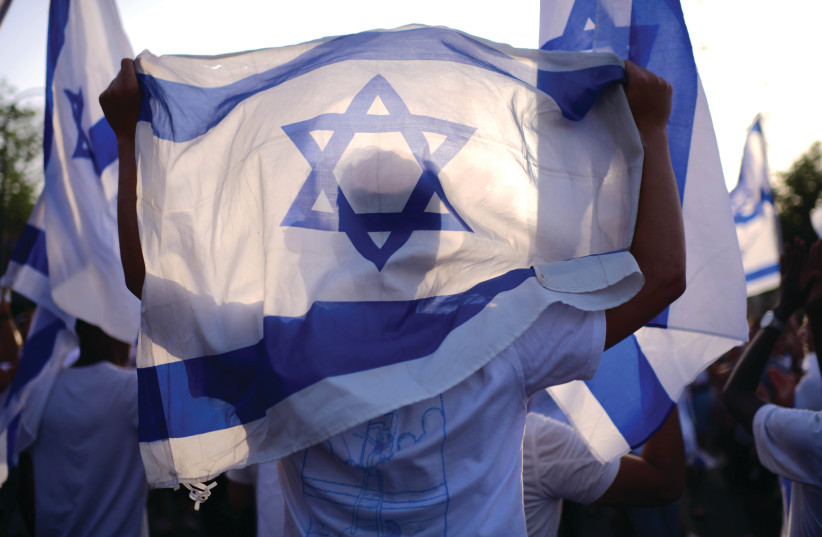UC Santa Cruz and NYU Law School will set the stage for the inaugural conference of the Institute for the Critical Study of Zionism (ICSZ) this October.
Touted as an endeavor to "Battle the IHRA definition," the event will grapple with the contentious matter of Zionism's essence and its entwined history with Jewish studies. While the atmosphere promises intellectual engagement, there's a palpable undercurrent of skepticism about the true intentions behind this initiative.
Amidst revealing interviews and divisive affiliations, the ICSZ's unfolding narrative is more than just academic—it hints at seismic shifts in the landscape of Zionist discourse, ethnic studies, and the ideological battles that underscore them.
Mission and vision of the institute
The Institute aimed to "delink the study of Zionism from Jewish Studies," presenting Zionism as a subject for critical inquiry rather than a movement for Jewish self-determination.
Emmaia Gelman, Sparkplug Foundation Trustee & Co-founder of the Institute, said in a revealing interview recently that: “Israel studies programs were deliberately created not to study Israel in a critical way, but to center pro-Zionist ideas about Israel... as if it’s possible to separate this incredibly violent... process of colonization that every Israeli is involved in every day.” She continued, "Zionist institutions – long before they were Zionist – were involved in anti-communism... in what you might think of now as orientalism, but we also just call it racism if we want.”

The interview with Gelman was published on the website of the Speaking Out of Place podcast.
The institute's ties to broader themes
In the interview, Gelman emphasized the connection between Zionism and larger socio-political dynamics: “Without minimizing how Zionism operates directly on Palestinians... we want to tie it [Zionism] to this much larger western supremacy and white supremacy...”. Reflecting on the roots of Zionist organizations, she commented, "Even before it was a Zionist organization... the [Anti Defamation League] ADL was fundamentally a white organization, a settler organization."
Prof. Christine Hong, another co-founder, contributed to this dialogue, stating, “We understand that a critique of Zionism is part and parcel of a field [ethnic studies] that takes as its mandate a critique of all forms of imperialism.”
Furthermore, Gelman mentioned the Institute's plans for the future, stating: “The bones of the project [ICSZ]” are annual fellowships for students and academics, conferences, publications...”. Highlighting the significance of ethnic studies, she added, “The reason it’s been so important to focus on ethnic studies... is that ethnic studies have their roots in all the struggles that Zionist institutions have been the antagonists in for decades.”
“We understand that a critique of Zionism is part and parcel of a field that takes as its mandate a critique of all forms of imperialism.”
Prof. Christine Hong
Some of the co-sponsors of this event were classic pro-BDS organizations such as Jewish Voice for Peace (JVP) and National Students for Justice in Palestine (NSJP). An additional sponsor was Friends of Sabeel North America (FOSNA), whose Executive Director, Jonathan Kuttab titled it a terrorist organization, together with five other Palestinian non-profit organizations.
Connection to California Ethnic Studies Movement
Similar to the institute’s hostility towards Israel, and in line with the founding collective’s worldview, the institute promotes an anti-American, anti-Western ideology, as seen on its website, where it writes that “Like the US, Israel is a settler colonial state.” Based on the website, it appears that the driving forces behind the institute are also deeply involved in the movement to promote the antisemitic, anti-American iteration of critical ethnic studies in California.
For example, as of August 8, 2023, at least three of 10 of the institute’s founding collective are ethnic studies professors; At least two of 10 of the co-sponsors are academic ethnic studies entities, with the others related to the ethnic studies movement or supportive of it; At least five of 15 members of the Conference Planning Collective are ethnic studies academics, all based in California.
What this means
This appears to be the most institutionalized iteration of the recent movement to separate Jews from Zionism, representing a strategic shift in the anti-Zionist or antisemitic strategy. This institute may be a harbinger of what’s yet to come. If left unchecked, years from now, there could be an entire university “Departments of Critical Zionist Studies,'' dedicated to studying “Critical Zionism Theory” in universities across the US, inculcating antisemitism into the next generation of Americans.
